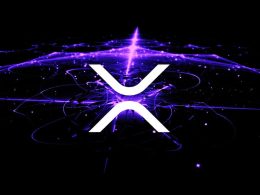In a world where traditional financial systems are dominated by centralized institutions, the rise of decentralization offers a revolutionary alternative that could reshape the way we manage our personal finances. For decades, banks, governments, and corporations have held the reins of control over money, credit, and investment opportunities, leaving individuals with limited freedom to fully manage their wealth on their own terms. But with the advent of blockchain technology, decentralized finance (DeFi), and cryptocurrencies, we are now witnessing a shift that empowers individuals to take full control of their financial destinies.
In this post, we will explore the power of decentralization and how it has the potential to free personal finance from the limitations and risks of traditional centralized systems. By embracing decentralized platforms, individuals can achieve financial sovereignty, access global markets, and eliminate middlemen, allowing for more freedom, privacy, and control over their wealth.
What is Decentralization in Finance?
Decentralization refers to a system where control and decision-making are distributed away from a central authority. In the context of finance, decentralization means moving away from the traditional banking system, which is heavily centralized and controlled by governments, central banks, and financial institutions. Instead, decentralized systems rely on blockchain technology, smart contracts, and peer-to-peer networks to enable financial transactions without intermediaries.
In a decentralized financial ecosystem, power is no longer concentrated in the hands of a few institutions but instead distributed across a network of participants. This shift toward decentralized finance (DeFi) gives individuals greater control over their assets, data, and financial decisions, opening up new possibilities for personal financial freedom.
How Centralized Finance Limits Personal Freedom
Before understanding how decentralization frees personal finance, it’s important to look at the limitations of the centralized financial system we currently live in. Here are a few ways centralized finance (CeFi) can hinder personal freedom:
Limited Control Over Assets
In the traditional financial system, individuals do not fully control their assets. When you deposit money into a bank account, for instance, the bank has control over how that money is used, and they can freeze or seize accounts under certain circumstances. Additionally, banks may limit access to your funds during times of financial crisis or impose withdrawal limits.
High Fees and Middlemen
Banks, payment processors, and other intermediaries charge fees for facilitating financial transactions. Whether it’s a bank transfer, loan, or investment, the fees imposed by intermediaries can significantly reduce the overall returns or raise the cost of borrowing.
Financial Exclusion
Many people around the world are excluded from the formal banking system due to a lack of access to banking infrastructure, credit history, or stringent government regulations. According to the World Bank, around 1.7 billion adults globally do not have access to a bank account. Centralized financial systems disproportionately affect those in developing countries and regions with underdeveloped banking services.
Lack of Transparency and Privacy
Centralized financial institutions hold vast amounts of personal and financial data about their users. While this data is often necessary for compliance and regulation, it also poses risks for privacy. Centralized control over financial data can lead to breaches, data misuse, and surveillance.
Political and Economic Vulnerabilities
Centralized finance is subject to government interventions, currency devaluations, capital controls, and inflation. These factors can lead to the erosion of wealth, as citizens in countries with unstable economies or authoritarian regimes have little to no control over their financial well-being.
How Decentralization Empowers Personal Finance
Decentralization flips the script on traditional finance by giving individuals full control over their wealth and financial transactions. Let’s explore the key ways that decentralized finance (DeFi) and blockchain technology empower individuals and revolutionize personal finance.
Full Ownership and Control Over Assets
One of the most powerful features of decentralization is that it gives individuals full ownership and control over their assets. With decentralized systems, you no longer need to trust a central bank or institution to hold your wealth. Instead, assets are stored in digital wallets that you control through private keys. Whether it’s Bitcoin, Ethereum, or other cryptocurrencies, you have complete autonomy over how, when, and where you spend or invest your money.
This level of control eliminates the risk of account freezes or seizures by third parties, allowing individuals to move their money freely and safely without the need for permission from any centralized entity.
Eliminating Middlemen
Decentralized finance allows users to interact directly with one another through peer-to-peer (P2P) networks, eliminating the need for intermediaries like banks, brokers, or payment processors. Smart contracts—self-executing contracts with the terms of the agreement directly written into code—automatically enforce transactions without the need for human intervention.
For example, decentralized lending platforms allow users to lend and borrow funds directly from one another, with the terms of the loan managed by smart contracts. This process eliminates traditional financial intermediaries, reducing costs and increasing efficiency.
Financial Inclusion and Global Access
One of the most significant impacts of decentralization is its ability to foster financial inclusion. Decentralized systems are borderless, meaning anyone with an internet connection can access decentralized financial services, regardless of their location or financial background.
With DeFi platforms, individuals can access savings accounts, lending services, and investment opportunities without the need for a bank account, credit score, or government ID. This opens up new possibilities for millions of unbanked or underbanked individuals who have historically been excluded from the global financial system.
For example, platforms like Aave and Compound allow individuals to lend their assets or borrow against their crypto holdings without traditional financial intermediaries.
Privacy and Security
Decentralization enhances privacy and security by removing the need for centralized storage of personal data. In traditional systems, banks, credit bureaus, and financial institutions hold a vast amount of personal information, making them attractive targets for hackers. In contrast, blockchain technology ensures that financial transactions are pseudonymous (users can participate without revealing their identity), while also offering immutable records that cannot be tampered with.
Additionally, cryptography ensures that only the owner of a wallet can access their funds, making decentralized financial systems inherently more secure than centralized databases prone to breaches and fraud.
Inflation Hedge and Store of Value
Decentralized cryptocurrencies, especially Bitcoin, have become popular as stores of value and hedges against inflation. Unlike fiat currencies that can be printed at will by central banks, Bitcoin’s supply is capped at 21 million coins, creating a finite asset that is resistant to inflationary pressures.
In countries with unstable currencies or high inflation, Bitcoin and other decentralized assets offer individuals a safe haven to store their wealth without fear of devaluation.
Examples of Decentralized Finance (DeFi) Use Cases
Decentralization is already transforming the financial landscape through Decentralized Finance (DeFi). Let’s look at some real-world use cases where DeFi is empowering individuals and giving them control over their financial futures:
Decentralized Lending and Borrowing
One of the most popular applications of DeFi is decentralized lending and borrowing. Platforms like Aave, Compound, and MakerDAO allow users to lend their cryptocurrencies to others and earn interest, or borrow against their crypto assets. Since these platforms operate without intermediaries, users can get better interest rates, lower fees, and immediate access to liquidity.
Decentralized Exchanges (DEXs)
Traditional cryptocurrency exchanges like Coinbase or Binance are centralized, meaning they hold custody of users’ funds and data. However, decentralized exchanges (DEXs) like Uniswap, SushiSwap, and PancakeSwap allow users to trade directly from their wallets, without the need for an intermediary. DEXs also offer greater privacy and reduce the risk of exchange hacks or censorship.
Yield Farming and Staking
Decentralization allows users to participate in yield farming and staking to earn passive income on their cryptocurrency holdings. Yield farming involves providing liquidity to DeFi platforms in exchange for rewards, while staking allows users to lock up their assets to help secure a blockchain network and earn rewards. Platforms like Yearn Finance and Balancer offer users opportunities to earn returns on their crypto assets without relying on traditional financial institutions.
Cross-Border Payments and Remittances
Decentralization enables fast and cost-effective cross-border payments and remittances. Cryptocurrencies like Bitcoin and Ethereum allow users to send funds across borders without the need for expensive remittance services or long wait times. This use case is especially beneficial for individuals in countries with high remittance fees, as they can transfer funds instantly and at a fraction of the cost.
Challenges and Risks of Decentralized Finance
While decentralization offers many benefits, it is important to acknowledge the challenges and risks associated with decentralized finance:
Volatility
Cryptocurrencies and DeFi assets are highly volatile, meaning their value can fluctuate dramatically over short periods. This volatility can pose risks for individuals using DeFi platforms for lending, borrowing, or savings.
Complexity
DeFi platforms often require a higher level of technical knowledge to use compared to traditional financial services. Many users may find it difficult to navigate decentralized platforms without understanding the underlying technology, making it important for educational efforts to accompany the growth of DeFi.
Regulatory Uncertainty
Governments and regulatory bodies are still grappling with how to regulate decentralized financial systems. As DeFi grows, it is likely to face increased scrutiny and potential regulation, which could impact the level of freedom and privacy offered by decentralized platforms.
Decentralization as a Path to Financial Freedom
The power of decentralization in personal finance is undeniable. By enabling individuals to take full control of their assets, eliminating middlemen, and fostering financial inclusion, decentralization is laying the groundwork for a more equitable, transparent, and empowering financial system.
While decentralized finance (DeFi) is still in its early stages, its potential to revolutionize personal finance is clear. For those who embrace it, decentralization offers an opportunity to break free from the limitations of centralized financial systems and unlock new possibilities for wealth creation, financial autonomy, and global access to financial services.
As the DeFi ecosystem continues to mature, individuals will have more options than ever before to manage their finances on their own terms—ushering in a new era of financial freedom.








